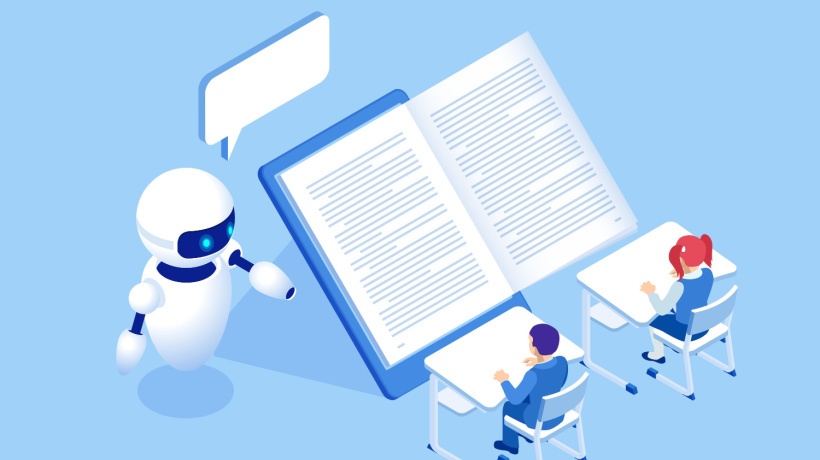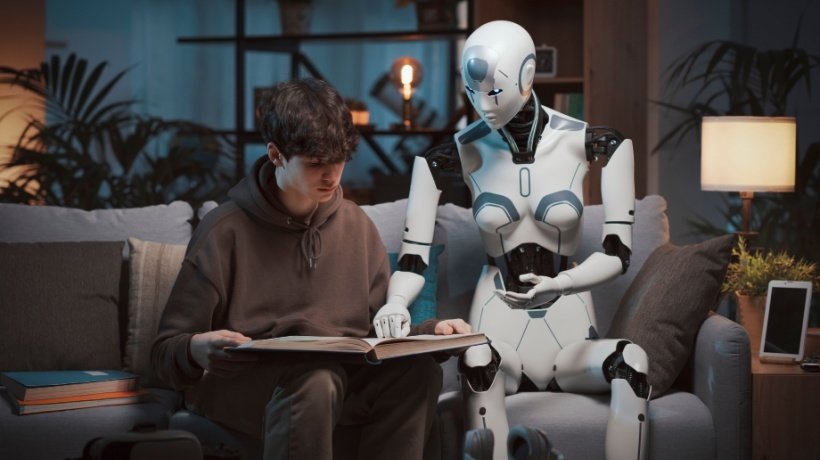Why Adaptive AI Tutors Are Reshaping How We Learn
Not too long ago, corporate training was a predictable affair. You'd sit through half-day workshops, click through clunky LMS modules, and occasionally zone out during Zoom webinars, wondering if anyone else was still awake. Most of it felt disconnected from your actual job, and even when it was relevant, it wasn't always engaging. Then came a wave of change—and now, we're at a point where AI-powered tutors are quietly but radically transforming how learning happens in the workplace.
I'm not talking about chatbots that spit out generic answers or digital assistants that schedule meetings. I mean AI-powered tutors that learn how you learn—ones that adapt, adjust, and personalize training the way a great human mentor would, minus the scheduling conflicts and bandwidth issues. Let's talk about what's actually happening behind the scenes and why it matters.
Personalized Learning, Minus The Fluff
AI-powered tutors are built on models that go way beyond a standard "if-this-then-that" logic tree. These systems actually learn from the behavior of the learner—how long someone spends on a module, where they tend to make mistakes, what kind of content they're more likely to engage with (videos vs. text, for example), and even when they're most active.
The Result? A Learning Experience That Adapts In Real Time
Think of it this way: imagine two employees in a sales team—one's a natural at client communication but struggles with CRM tools; the other is a data geek but dreads presentations. In a traditional training module, they'd go through the exact same content. An AI tutor, however, tailors the experience, providing more support, nudges, and practice exercises exactly where each individual needs it. This isn't just efficient. It's humane. It recognizes that people don't learn the same way and that's okay.
Feedback That Feels Like Mentorship
One of the most underrated aspects of AI tutors is how they provide feedback. We've all completed quizzes in training portals where the only feedback is "incorrect" in red text, followed by the correct answer. Helpful? Maybe. Motivating? Not really.
AI-powered tutors are now being trained to explain why you got something wrong, to guide you towards the right approach, and sometimes, even to suggest prerequisite material you may have missed. It's like having a mentor who doesn't just correct you but helps you grow. And for managers or L&D teams, this is gold. Instead of spending hours poring over course completion data and test scores, they can focus on coaching, decision-making, and refining strategy, while AI handles the micro-level tracking and course correction.
Scaling Knowledge Across The Organization
Here's where it gets even more interesting. AI-powered tutors don't just make training better at the individual level, they make organizational knowledge scalable. Let's say your company rolls out a new CRM platform. Traditionally, you'd create training modules, run a few webinars, maybe assign a point person in each team to help others. With AI tutors, you can have a system that learns the platform itself, answers questions in natural language, walks people through tasks step-by-step, and adapts the training depending on someone's role—say, a sales rep versus a customer support lead.
This Isn't A Future Fantasy. This Is Real And Happening Now.
I recently came across a report by that really put things into perspective. According to them, the digital pathology market is estimated to grow from $0.96 billion in 2024 to reach $1.01 billion in 2025 and $2.32 billion by 2035, representing a CAGR of 8.70% during the forecast period. While that might seem unrelated at first glance, it underscores how AI-powered diagnostics and automation are finding their footing in highly complex fields like healthcare. If AI can assist in analyzing tissue samples with such precision, imagine what it can do for something like corporate training, a domain that's traditionally underfunded and underserved.
But Let's Not Get Carried Away
Now, before this turns into a love letter to AI, let's acknowledge the caveats. AI-powered tutors aren't magic. They can only be as good as the data they're trained on, and they're still susceptible to bias, especially if the underlying models aren't diverse or representative.
More importantly, AI doesn't (and shouldn't) replace human mentorship. What it can do is augment it. AI tutors are great at making sure no one falls behind, but they still lack the emotional intelligence to pick up on things like motivation slumps, burnout, or imposter syndrome: areas where human empathy is irreplaceable.
Also, if companies roll out AI-powered tutors just to check a box or save money on live sessions, it can backfire. The tech works best when it's part of a broader learning ecosystem, not when it's left to do all the heavy lifting.
What This Means For The Future Of Work
Here's the big picture: as companies continue to go hybrid, deal with high turnover, and chase agility, AI tutors offer something rare: consistency in growth. Employees don't want more training; they want better training. They want to feel like their time is respected and their growth is personalized. AI-powered tutors deliver on that, and in doing so, they make upskilling a part of everyday workflow rather than a quarterly box to tick. And for companies? The ROI is tangible. Faster onboarding, better compliance, improved employee retention, and stronger skill alignment.
Final Thoughts (From Someone Who's Lived Through Bad Training)
I've sat through terrible compliance modules. I've clicked "next" on slides I didn't read just to finish a training. I've zoned out during webinars that didn't speak to my role at all. So I say this not as an outsider looking at trends, but as someone who knows what a waste bad training can be.
AI-powered tutors are not perfect, but they're a big leap in the right direction. They represent a shift toward respecting the learner not just as a checkbox, but as a person with different needs, habits, and goals. And in a world where learning is increasingly the only sustainable competitive advantage, that shift couldn't come soon enough.









